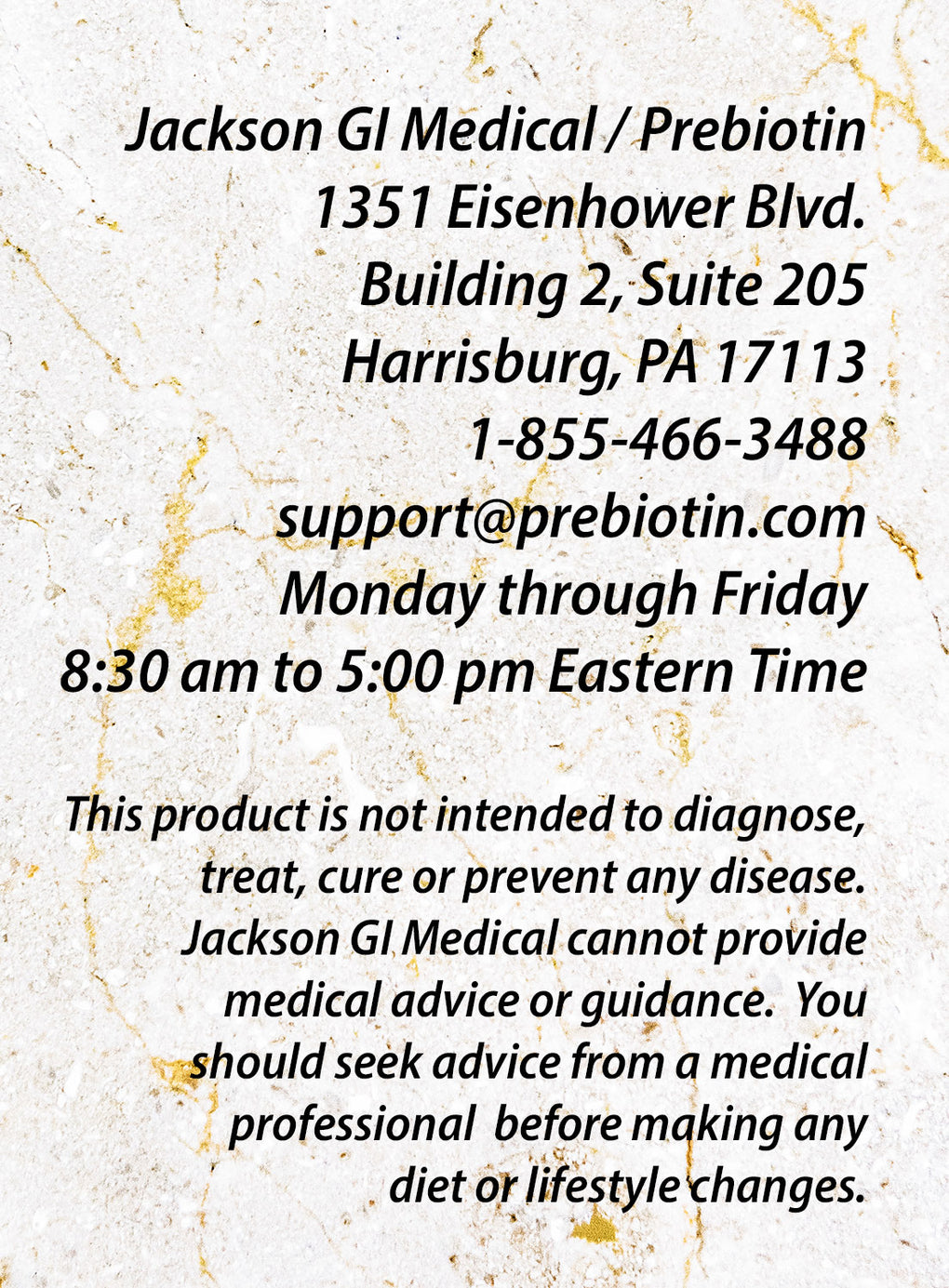Stressed Brain, Stressed Gut
Irritable Bowel Syndrome: How To Get Your Life Back

A college student misses classes because she is stuck in her room with nausea, pain, and gas.
A 46-year-old man doesn’t make it to the bathroom at a football game and now worries about “close calls” or “disasters” every time he leaves the house for an event or travel—which he does less and less.
A 50-year-old women with IBS constipation worries about having a bowel movement anywhere except her home because of the time she requires—and the noise from gas and odor.
All these people have learned to live with the embarrassment, pain, and social limitations that accompany irritable bowel syndrome, or IBS. While there are many reasons for their symptoms, many have an extraordinary reaction to stressful situations. They are not alone.
What is IBS?
Do any of these scenarios describe your life? Most people reading this know at least one person with this common condition—at any given time, 10 to 20 percent of a population may have IBS.
Irritable bowel syndrome (IBS) is known by a variety of other terms: spastic colon, spastic colitis, mucous colitis, and nervous or functional bowel. Usually, it is a disorder of the large intestine (colon), although other parts of the intestinal tract even up to the stomach can be affected.
You may develop this disorder from a wide range of reasons, from genetic vulnerability to enhanced sensitivity of the nerves in your gut to pain and discomfort. The most common reason people develop IBS symptoms is response to psychological stress that may change the bacteria composition of the gut microbiome—and cause IBS symptoms. Since the gut-brain axis works both ways, the type of bacteria in the gut can also cause feelings of anxiety and stress.
When IBS occurs, the colon does not contract normally. Instead, it seems to contract in a disorganized, at times violent, manner, causing social insecurity and anxiety because you can’t predict the next emergency trip to the bathroom. Common symptoms include abdominal pain, cramping, bloating, and a change in bowel habits. Some people experience diarrhea, some constipation, some go back and forth between both.
While everyone suffers from bowel changes now and then, if you have IBS, the symptoms are more severe, or occur more often. They can be constant or keep coming back. While these symptoms can cause major discomfort, they do not indicate permanent damage to the intestines. Instead IBS is a problem of abnormal function.
The condition usually begins in young people, often under 40. It is not uncommon in the teens. The symptoms may wax and wane, be particularly severe at some times, and absent at others. Over the years, the symptoms tend to become less intense.
While everyone suffers from bowel changes now and then, if you have IBS, the symptoms are more severe, or occur more often.
While there is no known cure for this debilitating disease, many doctors recommend specific changes in lifestyle—from better stress management, physical exercise, and more sleep, to diet changes that may include consuming more fiber—especially the soluble fiber that is found in Prebiotin® Prebiotic Fiber.
Others integrate the low FODMAP diet to reduce or avoid certain foods that contain carbohydrates that are hard to digest.
In the U.S. about 25 to 45 million people in the United States suffer from IBS. If you are a woman, you are up to two times more likely to develop IBS. Under 45? Again, more at risk than if you are over 50.
How Do I Recognize IBS?
Everyone has bowel changes occasionally. If you have IBS, you may experience bowel changes that can include pain before bowel movements, constipation, gas, odor, and diarrhea on a regular basis. Most find that these symptoms are ongoing or keep reoccurring, often at unpredictable times.
For many, IBS can cause major changes in lifestyle and relationships. You may start to limit events you attend, travel, and even visits to friends and family.
Despite unpleasant symptoms and lifestyle changes, fewer than 50% of those with IBS seek medical help. Culturally, symptoms related to bowel function are often trivialized or considered embarrassing, although doctors report that patients consider IBS one of the most burdensome chronic ailments. Many accept IBS symptoms as a part of life they can’t change.
Symptoms

IBS is characterized by
- Bloating and gas (particularly after eating)
- Abdominal cramping, pain, or discomfort
- Constipation, diarrhea (or both)
- Urgency to have a bowel movement, sometimes right after having one
- Abnormal stool form (including the passage of mucus)
- Constant or reoccurring symptoms
In women, symptoms can be worse during specific times in the menstrual cycle.
Sources: JAMA Patient Page and Facts about IBS, International Foundation for Functional Gastrointestinal Disorders.
What IBS isn’t…
You may have lactose intolerance and can’t digest lactose or milk sugar. Or you may have celiac disease, an immune disorder whereby the small intestine is injured when exposed to gluten, a protein found in wheat and related grains. Both lactose intolerance and celiac disease may have symptoms similar to IBS but are not considered part of IBS.
If you have IBS-like-symptoms related to extensive damage to the intestinal wall, including ulcers (or holes) or inflammation, you may be diagnosed with inflammatory bowel disease or IBD. While IBS and IBD may share similar symptoms initially, they are totally distinct conditions with very different disease courses.
The Difference between IBS and IBD
Irritable bowel syndrome (IBS) is completely different from IBD (irritable bowel disease), which includes Crohn’s disease and ulcerative colitis.*
| Irritable Bowel Syndrome (IBS) |
Inflammatory Bowel Disease (IBD) (includes Crohn’s disease and Ulcerative Colitis) |
| Problem with the functioning of the bowel rather than in the structure of the bowel, such as an obstruction or a tumor. | Affects the structure of the bowel. |
| Affects the muscle contractions of the colon. | Characterized by intestinal inflammation and obvious abnormalities found in the large intestine during testing. |
| No changes to the intestinal wall uncovered by testing. | Testing may show extensive damage to the intestinal walls, including ulcers (or holes), inflammation. |
| IBS does not lead to life-threatening illnesses. | Untreated IBD can lead to serious complications like liver disease, arthritis, and even colon cancer. |
| Treatment is usually focused diet and lifestyle changes. When drugs are needed, antispasmodics or antidepressants are sometimes used. | Treatments for IBD often involve drugs, such as immunosuppressives, biologics, and steroids. |
* This chart was developed from the following sources: JAMA Patient Page, Irritable Bowel Syndrome, Crohn’s and Colitis Foundation & Very Well Health, “The Differences Between IBD and IBS.”
Only when other major health diseases and conditions are ruled out does the doctor diagnose IBS.
Why do I have IBS?
“Trigger foods”
Some people with IBS have a sensitivity to certain foods and find they trigger bowel symptoms. Genetics may play a role in food sensitivities.
The list may be different for each individual, but common “trigger” foods include:
- Beverages: coffee, tea, and alcohol
- Hot spices
- Raw fruits (citrus and banana)
- Grains (wheat, barley, rye, oats, corn)
- Vegetables (onions, peas, potatoes, cabbage)
- Dairy products (yogurt, milk, cheese, eggs, butter)
- Legumes (beans, lentils)
- Chocolate
- Fried foods
- Certain meats and smoked products
If a specific food is a problem, then the obvious solution is avoidance. However IBS can be complicated since flare-ups can also be caused by infections, illnesses, changes in the weather, and even a specific phase of the menstrual cycle.
Stressed brain, stressed gut
By far, the most common factor associated with symptoms of IBS is response to psychological stress. Virtually everyone has had, at one time or another, some alteration in bowel function when under intense stress, such as before an important athletic event, school examination, or a family conflict.
However, if we experience chronic stress, we can eventually develop IBS symptoms, while GI symptoms can also lead to anxiety and stress. The relationship between stress and digestive health issues is bidirectional.
The “second brain” and how it responds to stress
We now know there is a two-way communication between the gut and brain called the gut-brain axis. These neural pathways allow our central nervous system to control the complicated process of digestion.
However, this is just a start. The gut-brain axis can also tell us how to respond to our environment. In other words, the gastrointestinal tract acts as a “second brain” because it contains so many nerves that send signals back and forth to the brain—which can impact our physical health, our mood, and even the way we think.
For more information on the link between the brain and the gut microbiome, check out Prebiotin’s blog, “Two Brains? The Answer to Treating My Depression May Be in my Gut.”
The surface of our gastro-intestinal tract is more than 100-times larger than the surface area of our skin, sensory feedback from the gut-brain axis can shape emotional responses, even at the subconscious level. – “Follow Your Gut,” Psychology Today
The types of bacteria in the gut determine which signals are sent. Too many “bad” bacteria can lead to inflammation and increased risk for disease, including gastrointestinal disorders like IBS. Numerous studies have shown that people with IBS show an altered composition of their gut microbiota.
The impact of stress on IBS
Since the gut-brain axis works both ways, psychological stress is an important factor for the development of irritable bowel syndrome (IBS). More and more clinical and experimental evidence shows that IBS is a combination of irritable bowel and irritable brain.

Stress can impact our immune system (80% is in the gut) and affect the function of the central nervous system.
Evidence from both clinical and experimental studies shows that psychological stress, acute or chronic, occurring in early life or adulthood, also has a marked impact on all aspects of the sensitivity and function of the gastrointestinal system.
An epidemic of anxiety
In modern times, stress is often discussed in terms of the epidemic of anxiety that is part of modern life. The difference between stress and anxiety is that stress is a response to a threat in a situation. Anxiety develops after we’ve experienced stress for a long time.
The impact of toxic, pervasive stress is linked to America’s historic decline in life expectancy in a recent HBO documentary, One Nation Under Stress.
In the documentary a leading forensic pathologist Cyril Wecht explains: “What we are looking at is an increasingly stressed society.” He points to stressors like depersonalization, economic uncertainty and unstable family units, all of which can be deadly when coupled with self-medication or over-medication of prescription drugs.
Neurosurgeon and CNN chief medical correspondent Dr. Sanjay Gupta, notes, “Ultimately, these premature deaths are all a reflection of the stress, the pain that comes with that stress, and the desire to, in some ways, medicate it away, even to the point it could be dangerous and it could end your life.”
– One Nation Under Stress, HBO documentary
While over 18% of people over 18 suffer from anxiety disorders, about 50% of all individuals with IBS also have anxiety with depression mixed in.
Anxiety symptoms can include feeling extreme nervousness most of the time, inability to relax or concentrate, panic, and poor sleep. Physical symptoms can include nausea, breathing problems, dizziness, and heavy perspiring.
While it is normal for us to feel anxious at some points of our lives, when anxiety is a permanent feature of daily life, we start seeing an increase in disease conditions that can include IBS. The treatment for a stress sensitive disorder like IBS may therefore begin by learning how to manage stress.
How do I feel better with IBS?
The approach to treating IBS is often two-pronged: change the microbiome with diet—and finds ways to manage anxiety and stress.
Medications for depression and anxiety:
Since there is a link between depression and IBS, treatment may begin with a prescription for an antidepressant if depression is part of your symptoms. Other common medications prescribed include anti-spasmodics that relax the muscles in the wall of the colon, thereby reducing the bowel pressure.
Food guidelines:
You will also be asked to examine your eating habits. Your doctor or gastroenterologist may work with you to identify foods that trigger IBS attacks. You may be asked to keep a written food diary or take pictures of your daily food intake with your cell phone so that you are more conscious about what you eat—and if certain foods cause IBS symptoms.
Common dietary guidelines for IBS include:
- Avoid heavy, fatty meals that can stimulate colon contractions, leading to abdominal cramps.
- Eat smaller meals, more frequently, and on a predictable schedule.
- Add more fiber slowly to your diet.
- Look into the low-FODMAP Diet, although most doctors do not recommend following the diet for the long-term since some of the foods eliminated are highly nutritious.
The connection between certain foods and the way your body digests them is the guiding principle behind adopting a low FODMAP diet for IBS. With the diet, you avoid foods that may trigger IBS symptoms. The belief is that FODMAP foods are difficult for the gut to absorb and digest, resulting in the trademark IBS symptoms of bloating and gas.
However, following the FODMAP diet does not heal the colon—instead you avoid a long list of foods that may trigger symptoms. The main drawback of this eating plan is the many limitations on what you can and cannot eat, often making it difficult to find foods you enjoy. You may need a dietician to follow this diet.
To develop a healthier microbiome, you may wish to combine any “food avoidance” approach with a diet that slowly adds prebiotic fiber in small, careful doses to bring the microbiome back into balance. (Click here for Prebiotin’s approach to an effective IBS diet.)
Nourishing a healthier microbiome:
People with IBS have a microbial imbalance, with fewer Lactobacillus and Bifidobacterium bacteria colonies than those without IBS, according to research studies. This imbalance is usually the result of a deficiency of dietary fiber. Therefore, another approach to IBS is to nourish a healthier mix of bacteria in the gut microbiome by introducing more dietary fiber in a careful, deliberate manner.
“The gut produces 90% of our body’s serotonin, which boosts feelings of happiness. The production of the stress hormone cortisol is also modulated by the microbiome, so if we can improve the levels of healthy bacteria in our gut, it may have a positive effect on our stress response.” — Dr. Eileen Murphy, specialist in the microbiome and gastrointestinal health, in Women and Home.
Introducing greater amounts of dietary fiber can exacerbate symptoms. Therefore, it is important to introduce fiber cautiously, in small amounts. Some studies show a water-insoluble fiber may be less helpful than soluble fiber in improving IBS symptoms. You’re probably wondering right now, what’s the difference?
Insoluble fiber is the type of fiber people think of as “roughage.” It’s the tough matter found in stalks, skins, and seeds in fruits and veggies that isn’t broken down in the digestive system. Instead, it adds bulk to waste and is great for constipation and hemorrhoids. However, it may make IBS symptoms worse.
Soluble fiber from foods like peas, barley, fruits, beans is fermented in the digestive system and feeds beneficial bacteria. Not only does this type of fiber also help with digestion and elimination, it supports your immune system, reduces inflammation in your body, and helps to protects against a wide range of health conditions, from heart disease to depression.
Choose the right fiber for you: Prebiotin
If you are finding it hard to eat the right combination of fruits and vegetables in the perfect amounts to help reduce IBS symptoms, consider adding the soluble plant fiber in Prebiotin® Prebiotic Fiber to your diet. Prebiotin is a chicory-root based fiber especially formulated to stimulate the growth of good bacteria in the colon, producing certain well-defined health benefits.
Since Prebiotin is in powder form, you can easily add it in small amounts, building up the level you take over weeks so that you don’t trigger symptoms. It can be added to your morning hot beverage or sprinkled on your lunch. Prebiotin can be added to any food, hot or cold, without changing the taste. With daily use, you can change the bacterial make up of your gut microbiome so that beneficial bacteria colonies thrive.
You may find that as you strengthen your digestive system, you will experience fewer IBS related symptoms. Research with inulin-based prebiotics like Prebiotin have demonstrated that regular use can improve your mood and lessen anxiety—another benefit in managing IBS.
Alternative/Complementary treatments for IBS:
Some individuals have also found some relief from IBS symptoms using alternative and complementary treatments like peppermint oil, ginger, acupuncture, and Chinese herbal formulas. Others find symptom relief with stress reduction practices like yoga, meditation, and hypnosis. While there may not be a cure for IBS, many of these methods bring relief from symptoms and allow greater personal freedom.
Financial Impact of IBS*
While only about 25% of individuals with IBS seek medical care, the high prevalence of IBS translates into a sizable economic burden.
- IBS is one of the leading causes of work absenteeism.
- About one-third of employees with IBS miss an average of one day of work per month due to their symptoms, resulting in a productivity loss 15 to 21 percent higher than those without the condition.
- Costs related to doctor visits and diagnostic tests add up quickly—and have been estimated to range from $1.5 to $10 billion a year. (These estimates do not include prescription medications).
- Indirect costs that include loss of hourly wages resulting from missed work or diminished work productivity are estimated to be up to $20 billion a year.
- About 3.5 million physician, emergency room, and outpatient medical visits yearly can be attributed to IBS.
* Based on “Health Economics of IBS — Clinical Implications: Economic Burden of IBS” in Medscape, April 10, 2019.
Why has the incidence of IBS increased in recent decades?
One response from the research sector is the increasing use of food additives in processed foods. (Check out Prebiotin’s two-part blog: The Problem with Emulsifiers: Part 1 & Part 2.)
In a 2018 NYT Sunday Review article, the author writes about a growing body of evidence “indicating that common food additives can push our microbial communities in unhealthy directions, not only potentially aiding the emergence of new pathogens, but also encouraging diseases like obesity, diabetes and inflammatory bowel disease.”
For example, artificial sweeteners like saccharin and sucralose have been marketed as benign additions to our food supply, and are used in most diet products, from soda to “sugar-free” snacks.
Yet research is emerging daily that these types of additives may inhibit the growth of beneficial intestinal bacterial and alter the gut microbiota. The resulting inflammation has been linked to a series of diseases, from diabetes, cancer, and heart disease to bowel dysfunction and anxiety and depression disorders.

Living in a chemical soup
Not only are we eating strange chemicals in our food, we are increasingly living in a chemical soup.
While it is difficult to draw a straight line between chemical exposure and anxiety, a major study documented the link between exposure to chemicals that cause pollution and higher levels of anxiety.
Cultural shifts that make us more anxious
Others point out that we are more anxiety ridden as a culture than ever before—and, therefore, more of us have IBS. Some point to cultural shifts that have led to greater focus on materialism and status, with less focus on community and the greater good.
Researchers note that more people now live alone, and depression and anxiety have risen accordingly. We’ve all read that social media like Facebook makes real human connections more fragile, current economic trends make careers more unstable, and then there’s climate change…
FORTUNE Brainstorm Health Conference: Addressing the Stress and Burnout Epidemic
Top business leaders at this year’s FORTUNE Brainstorm Health Conference have become aware that stress has become a national crisis, costing the U.S. economy $300 billion annually in sick time, disability, and job turnover.
Conference co-chair Arianna Huffington, founder and CEO of Thrive Global, comments: “At the very heart of this year’s Fortune Brainstorm Health conference…is the stress and burnout epidemic that’s eating up our health care system, forcing businesses to redefine how they think about employee well-being, and driving innovation to help people manage their own health.
“The evidence of the epidemic is all around us: About 90% of health care costs are related to preventable chronic diseases and mental health conditions and our life expectancy has fallen three years in a row.” Arianna Huffington founded Thrive Global to offer a revolutionary approach to ending the epidemic of stress and burnout.
It is hard to summarize exactly why so many of us feel overwhelmed by modern life and constantly feel anxious, and why a growing number of us suffer with symptoms of IBS. We do know that we can make changes that decrease our symptoms and can make life livable again.
The Mayo Clinic offers the following suggestions to reduce IBS symptoms:
- Avoid foods that trigger your symptoms
- Eat high-fiber foods
- Drink plenty of fluids
- Exercise regularly
- Get enough sleep
Work with your doctor to fine-tune your dietary intake:
- Learn which high-gas foods to avoid.
- Some individuals may benefit from avoiding gluten.
- Explore the FODMAP diet with your doctor.
Medications like antidepressants and pain medications may help you manage your symptoms.
If you are not able to eat enough, or the right kinds of fiber-rich foods, consider adding Prebiotin® Prebiotic Fiber to boost the beneficial bacteria in your gut microbiome.
Moving beyond IBS
Despite the devastating impact of IBS in your daily life, there is hope that life can be “normal” again. As you explore a combination of dietary changes and stress-reduction methods, as well as alternative treatments, you can move beyond the limits of IBS and embrace life once more.

References
- Altobelli E, Del Negro V, Angeletti PM, et al. Low-FODMAP Diet Improves Irritable Bowel Syndrome Symptoms: A Meta-Analysis. Nutrients. 2017 Sep; 9(9): 940. Published online 2017 Aug 26.
- Anxiety and Depression Association of America.
- April is IBS Awareness Month. International Foundation for Gastrointestinal Disorders. Last updated: 14 May 2018. Accessed March 27, 2019.
- Bogdonas, Kristin. START THE WEEK OFF RIGHT: About stress and digestion. Quad-City Times. Apr 7, 2019 Updated Apr 8, 2019. Accessed April 2, 2019.
- Bolen B. How to Improve Your Quality of Life With IBS. Verywellhealth. Updated March 13, 2019. Accessed March 28, 2019.
- Canavan C, West J, & Card T. Review article: the impact of the irritable bowel syndrome. Aliment Pharmacol Ther. 2014 Nov;40(9):1023-34. doi: 10.1111/apt.12938. Epub 2014 Sep 9.
- Capili B, Anastasi JK, & Chang M. Addressing the Role of Food in Irritable Bowel Syndrome Symptom Management. The Journal for Nurse Practitioners. May 2016. 12(5): 324-329.
- Carabotti M, Scirocco A, Maselli MA, et al. The gut-brain axis: interactions between enteric microbiota, central and enteric nervous systems. Ann Gastroenterol. 2015 Apr-Jun; 28(2): 203–209.
- CDC. Health and Economic Costs of Chronic Diseases. National Center for Chronic Disease Prevention and Health Promotion. Updated Feb 11, 2019. Accessed April 12, 2019.
- El-Salhy M. Irritable bowel syndrome: Diagnosis and pathogenesis. World J Gastroenterol. 2012 Oct 7; 18(37): 5151–5163. Published online 2012 Oct 7. doi: 10.3748/wjg.v18.i37.5151.
- Facts About IBS. International Foundation for Gastrointestinal Disorders. Last updated: 24 November 2016. Accessed March 27, 2019.
- Facts & Statistics. Anxiety & Depression Association of America. Last updated 2018. Accessed March 26, 2019.
- FODMAPS and Irritable Bowel Syndrome. See how the right food choices can decrease symptoms of IBS. Monash University. 2018. Accessed March 27, 2019.
- Housel R. Follow Your Gut. Trusting your instincts—and your body. Psychology Today. Posted March 11, 2019. Accessed March 28, 2019.
- Huffington, Arianna. Arianna Huffington: The Way We Think About Health Is at an Inflection Point. Fortune.com. April 2, 2019. Accessed April 12, 2019.
- International Foundation for Gastrointestinal Disorders. Complimentary or Alternative Treatments. Last Updated 24 December 2016. Accessed March 27, 2019.
- Johns Hopkins Medicine. The Brain-Gut Connection. 2019. Accessed April 2, 2019.
- National Institute of Diabetes and Digestive and Kidney Diseases. Treatment for Irritable Bowel Syndrome. Updated November 2017. Accessed March 25, 2019.
- Newman, T. Anxiety in the West: Is it on the rise? Medical News today. 5 September 2018. Accessed April 2, 2019
- NIDDK. Treatment for Irritable Bowel Syndrome: How do doctors treat IBS? Accessed April 1, 2019.
- One Nation Under Stress, HBO documentary. Accessed April 12, 2019.
- Personal Stories. About IBS. International Foundation for Gastrointestinal Disorders. Last updated: 15 April 2016. Accessed March 27, 2019.
- Petrazak C. How Common is Irritable Bowel Syndrome (IBS) Really? Health Central. July 20, 2015. Accessed March 28, 2019.
- Qin HY, Cheng CW, Tan XD, et al. Impact of psychological stress on irritable bowel syndrome. World J Gastroenterol. 2014 Oct 21;20(39):14126-31. doi: 10.3748/wjg.v20.i39.14126.
- Recognizing Symptoms. International Foundation for Gastrointestinal Disorders. Last updated: 06 July 2016. Accessed March 27, 2019.
- Sass C., What’s the Difference Between Soluble and Insoluble Fiber? Explore Health. Updated January 31, 2017. Accessed March 28, 2019.
- Starting the FODMAP diet. Monash University. Updated 2019. Accessed March 29, 2019.
- Stress, Anxiety And IBS: Which Comes First? Anxiety.org. Published: 1/03/2016. Accessed April 1, 2019.
- Torpy JM (writer); Lynm C (illustrator); Glass RM (Editor). Irritable Bowel Syndrome. JAMA Patient Page. February 22, 2006. JAMA. 2006;295(8):960. doi:10.1001/jama.295.8.960.
- Treatment for Irritable Bowel Syndrome. NIH, National Institute of Diabetes and Digestive and Kidney Disease. Updated November 2017. Accessed March 28, 2019.
- Tresca AJ. The Differences Between IBD and IBS: IBD and IBS Have Similar Symptoms—How Can We Tell Them Apart? Very Well Health. Updated May 31, 2018. Accessed April 1, 2019.
- Woman & Home Contributor. What is anxiety? Anxiety symptoms, treatment and how to get rid of it for good. Woman & Home. 31 March 2019. Accessed March 25, 2019.
- Workplace Stress. The American Institute of Stress. Accessed April 12, 2019.







